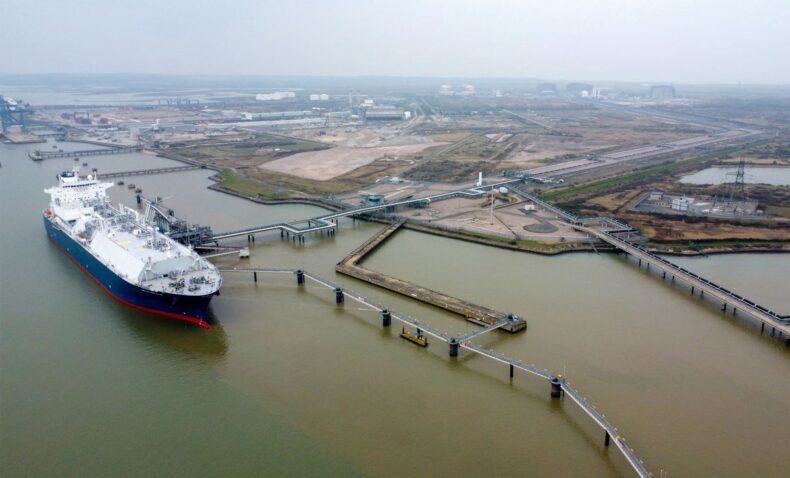
Liz Truss stated in her first speech as prime minister, “We will put shovels in the ground to ensure that no one faces unaffordable energy bills.” She has pledged to increase domestic energy production by increasing North Sea oil and gas extraction and fracking.
And on 22 September, the new Business and Energy Secretary, Jacob Rees-Mogg, told MPs, “We also need more secure and cheaper gas supplies, which is why we will issue more licenses and investigate shale gas.
The government expects to award “more than one hundred new licenses” for oil and gas exploration in the North Sea, according to him.
However, there have been warnings that these measures will not immediately reduce people’s energy bills.
In a letter to the prime minister, the heads of the Climate Change Committee and the National Infrastructure Commission warned that increased domestic production of fossil fuels could improve energy security. However, our gas reserves, whether offshore or from shale, are insufficient to significantly impact the prices faced by UK consumers.
In February, when Mr. Hands was energy minister, Labor leader Sir Keir Starmer also referred in Parliament to some “myth-busting” tweets from Greg Hands.
According to the tweet, it is a myth that extracting more North Sea gas reduces prices because “UK production is insufficient to materially impact the global price of gas.”
Kwasi Kwarteng, the current chancellor, also tweeted in February that “additional North Sea production will not have a material impact on wholesale prices (at least not in the near future)”.
Fundamentally, UK energy companies purchase gas on the international market, where prices are determined by global supply and demand.
Unless the government negotiates a price with the companies that extract it, the amount of additional oil that could be extracted from the North Sea or by fracking is unlikely to be sufficient to significantly reduce energy costs.
The government has stated that it will consider new long-term energy contracts with domestic and international gas suppliers, despite the risk of being locked into future prices above market levels.
There are also concerns regarding how long it would take for additional gasoline to become available.
Prof. Jonathan Stern of the Oxford Institute for Energy Studies states, “The primary issue is that even if you began drilling tomorrow, had success the next day, and everything else went according to plan, it would still take two to four years to produce enough gas to make a difference in UK output.”
While government estimates indicate that there is still a substantial amount of oil and gas beneath the North Sea, Professor Stern explains that the majority of it is now in deep water, far from shore, making it even more time-consuming to bring it online.
Fracking
Reversing the ban on hydraulic fracturing is not an easy or quick solution to high energy costs.
Prof. Stern stated that research conducted a decade ago concluded that fracking was not viable in Europe, and this conclusion still stands.
It is impossible to determine whether a resource is valuable until 50 to 100 wells have been dug, and this is a major problem in Europe.
This is due to the fact that Europe is generally more densely populated and land is more expensive than in the United States, where fracking has extracted significant quantities of gas and kept domestic energy costs low.
Kathryn Porter, an energy consultant at Watt-Logic, stated, “The United States’ export infrastructure is relatively limited, so they can only export a small portion of their output.”
This makes it more difficult for U.S. companies to sell their gas abroad, which keeps the domestic price significantly lower.
The CEO of the fracking company Cuadrilla, however, applauded the lifting of the moratorium, stating, “This is an entirely sensible decision that recognises that maximizing the UK’s domestic energy supply is essential if we are to overcome the current energy crisis and reduce the likelihood of its recurrence.”
What could lower bills in the UK?
New onshore wind energy could be available sooner than natural gas. According to the European Wind Energy Association, a small wind farm can be constructed in as little as two months after receiving planning permission.
However, a larger farm that required infrastructure, such as new roads, could take up to two years. In addition, the planning approval procedure can take two to three years.
During her campaign for the leadership, Liz Truss indicated that she prefers other forms of generation to onshore wind, but Chancellor Kwasi Kwarteng has just announced that the turbine installation planning process will be streamlined.
The CCC and NIC propose a variety of policies, including increased energy efficiency in buildings and enhanced energy education for consumers.
Some analysts have proposed separating electricity prices from gas prices by allowing households to enter into long-term contracts with renewable electricity generators as a solution.













